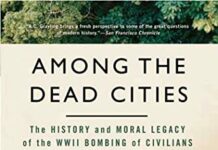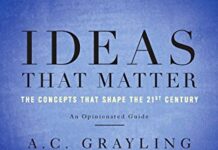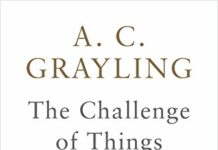
Ebook Info
- Published: 2017
- Number of pages: 288 pages
- Format: PDF
- File Size: 0.59 MB
- Authors: A. C. Grayling
Description
A renowned philosopher challenges long-held views on just wars, ethical conduct during war, why wars occur, how they alter people and societies, and more For residents of the twenty-first century, a vision of a future without warfare is almost inconceivable. Though wars are terrible and destructive, they also seem unavoidable. In this original and deeply considered book, A. C. Grayling examines, tests, and challenges the concept of war. He proposes that a deeper, more accurate understanding of war may enable us to reduce its frequency, mitigate its horrors, and lessen the burden of its consequences. Grayling explores the long, tragic history of war and how warfare has changed in response to technological advances. He probes much-debated theories concerning the causes of war and considers positive changes that may result from war. How might these results be achieved without violence? In a profoundly wise conclusion, the author envisions “just war theory” in new moral terms, taking into account the lessons of World War II and the Holocaust and laying down ethical principles for going to war and for conduct during war.
User’s Reviews
Editorial Reviews: Review “A brisk and sweeping survey.”—Mark Mazower, Financial Times — Mark Mazower ― Financial Times Published On: 2017-04-16“Exceptionally incisive on war and peace . . . As a former professional soldier, and no stranger to conflict, I regret not having had access to [War] when it mattered.”—Milos Stankovic, Spectator — Milos Stankovic ― Spectator Published On: 2017-05-04 About the Author A. C. Grayling is master, New College of the Humanities, and supernumerary fellow, St. Anne’s College, Oxford. He is active in the field of human rights and conflict intervention and has written or edited more than thirty books. He lives in London.
Reviews from Amazon users which were colected at the time this book was published on the website:
⭐Vices yes, Virtues no! “human folly in all its glory and in all its horror” – VoltaireThose who so carelessly defer to war as a solution must not have any real idea of the suffering and agony such actions in the world cause. Perhaps it is as easy to read over the history and gloss over the theory of war as it is difficult for me to write about the nature of sheer agony when it is witnessed firsthand. The suffering of people, victorious soldiers, defeated and vanquished enemies, the disease, plaque and starvation victims, and the victims of sheer deprivation has an altogether unique and unrivaled feel that overawes the human capacity to sense when experienced first-hand. There is that stench of agony and death, unique as it is unforgettable, the hideous visuals that overwhelm and shutdown the ability to imagine, sounds driven into brain that are never again silent, tactile sensations that at once crawl up the skin as they curl the flesh. An actual and weird taste of death becoming embedded on the palette as a constant companion to embellish the experience of existence. It is a totality that overwhelms the human capacity to feel and comprehend; it is the stuff of madness. One becomes beset by a creeping madness, constantly peering over the edge into the darkness that awaits. Many are horrified by their contact with this one who is the madness, lost in a darkness that becomes the root of all passion and all insight; beyond word and beyond ordinary experience. Who among the humans is not be a stranger I wonder? Sometimes I am afraid of the terrible things that are real, in the darkness of the unreality of things that I am and the things that I have seen. Reality now only comes to me through a fissure from the depths where through I get a glance of the light of the burning darkness of the underworld. Deep inside me is a perpetual seething. I can still hear the voices of reason, but they have been reduced to howls over the whispers of madness. Sanity is no longer my highest value and the madness of the ghosts in my brain are impossible to resist. I will say no more other than to say that this stuff of madness is the path into darkness which leaves one grouping in that darkness for the creation of a new kind of self-understanding after dreadful first-hand experience. There is no phenomenology of such exponential agony and suffering because there is no possible description of what it feels like when one feels it. Is this the price of progress? Perhaps it is the only way to understand the obvious, why war must be ended.War has already had its chance to demonstrate the madness and stupidity of the human race in applying primitive principles of competition and combat to human relations. War is not worthy of humans. War is conducted by aliens; for it is aliens that we become when we treat our fellow human beings as anything other than as fellow human beings; when we treat them as aliens by making war upon them we become aliens.
⭐The book offers a very broad but at the same time remarkably incisive study on the subject of war; the first few chapters on the history of war provide an excellent summary of events going back from BCE to today’s most recent warfare and they are filled with a vast amount of information. I also really enjoyed the second part of the book, which tackles the causes and effects of war; here again the author addresses the subject from several angles going from Darwinian evolution to culture and institutions. The last part on the ethics and law of war is a valid introduction to the theory of “just and unjust” wars.
⭐We need to learn from our past history.
⭐Great book about war in general from a master scholar
⭐Grayling accepts Steven Pinker’s research that ‘the number of those who have died violent premature deaths, as a percentage of the population, has declined throughout history, and the decline has been steepest since the eighteenth century – the period of the Enlightenment. Absolute numbers of war-related deaths have risen; the world has been growing more peaceful; these two facts are not inconsistent. But the relevant fact is that war still happens. That is an aspect of history that has not yet come to an end’. (p.114) And yet, as Newhauser and Martin say in the joint foreword, ‘We should not normalise’ war. This book is therefore an important inquiry. Grayling guides us through warfare from ancient times, through its medieval forms, and into the modern state of war – from Carthage, to Ghenjis Khan, to the American Goliath being tied down in various parts of the world by slingshot Davids. He then examines how thinking about war has changed in modern times. The causes of war may not have changed fundamentally, it is still ‘a more efficient instrument, when successful, for gaining markets and increasing a state’s wealth. But the complexity of international affairs make it difficult to draw clear conclusions. An important part of this book deals with the ethics of war. Winston Churchill’ may be somewhat a hero in the eyes of many, but his declaration ‘One cannot fight a war with one hand tied behind one’s back’ requires deep examination. One has to be careful, as Grayling points out, when citing authorities for this proposition. He reminds us that when ‘Christians were moved to punish their faith’s enemies, as in the Inquisition and the crusades, they cited Old Testament sources…because pacifist principles of the New Testament were an inconvenience’. The book’s penultimate chapter is titled, ‘The Future of War’. This will cause a loss of sleep so it is not a chapter to read at bedtime. Grayling starts with the story of the charge of the Light Brigade in 1854 and moves swiftly to the use of Lethal Autonomous Weapons, ironically shortened to ‘LAWs’. These and Unmanned aerial vehicles have made modern warfare so ethically challenging that we may wish to re-read this book’s chapter on ‘The Effects of War’ a few more times. Grayling ends with what may well be the right, and only, answer – ‘If there is one key to the entire question of war, it is justice. A fair world would be a far less conflicted one. Inequality and injustice are ripe causes of social unrest within a society; they have analogues in the international sphere which are heady prompts for conflict’. Now, if we can only get the politicians to read this book.
⭐Grayling accepts Steven Pinker’s research that ‘the number of those who have died violent premature deaths, as a percentage of the population, has declined throughout history, and the decline has been steepest since the eighteenth century – the period of the Enlightenment. Absolute numbers of war-related deaths have risen; the world has been growing more peaceful; these two facts are not inconsistent. But the relevant fact is that war still happens. That is an aspect of history that has not yet come to an end’. (p.114) And yet, as Newhauser and Martin say in the joint foreword, ‘We should not normalise’ war. This book is therefore an important inquiry. Grayling guides us through warfare from ancient times, through its medieval forms, and into the modern state of war – from Carthage, to Ghenjis Khan, to the American Goliath being tied down in various parts of the world by slingshot Davids. He then examines how thinking about war has changed in modern times. The causes of war may not have changed fundamentally, it is still ‘a more efficient instrument, when successful, for gaining markets and increasing a state’s wealth. But the complexity of international affairs make it difficult to draw clear conclusions. An important part of this book deals with the ethics of war. Winston Churchill’ may be somewhat a hero in the eyes of many, but his declaration ‘One cannot fight a war with one hand tied behind one’s back’ requires deep examination. One has to be careful, as Grayling points out, when citing authorities for this proposition. He reminds us that when ‘Christians were moved to punish their faith’s enemies, as in the Inquisition and the crusades, they cited Old Testament sources…because pacifist principles of the New Testament were an inconvenience’. The book’s penultimate chapter is titled, ‘The Future of War’. This will cause a loss of sleep so it is not a chapter to read at bedtime. Grayling starts with the story of the charge of the Light Brigade in 1854 and moves swiftly to the use of Lethal Autonomous Weapons, ironically shortened to ‘LAWs’. These and Unmanned aerial vehicles have made modern warfare so ethically challenging that we may wish to re-read this book’s chapter on ‘The Effects of War’ a few more times. Grayling ends with what may well be the right, and only, answer – ‘If there is one key to the entire question of war, it is justice. A fair world would be a far less conflicted one. Inequality and injustice are ripe causes of social unrest within a society; they have analogues in the international sphere which are heady prompts for conflict’. Now, if we can only get the politicians to read this book.
⭐AC Grayling has been a thought-provoking favourite for many years and I always enjoy listening to him lecture. He presents all the historical arguments very effectively, in a balanced way, and his presentation of current situations allows a valuable opportunity to evaluate decisions and their consequences.
Keywords
Free Download War: An Enquiry (Vices and Virtues) in PDF format
War: An Enquiry (Vices and Virtues) PDF Free Download
Download War: An Enquiry (Vices and Virtues) 2017 PDF Free
War: An Enquiry (Vices and Virtues) 2017 PDF Free Download
Download War: An Enquiry (Vices and Virtues) PDF
Free Download Ebook War: An Enquiry (Vices and Virtues)





